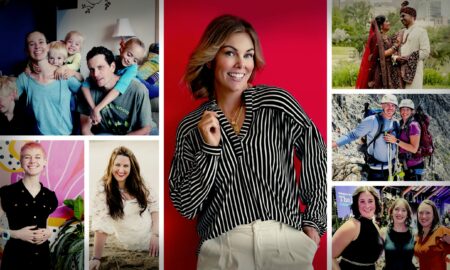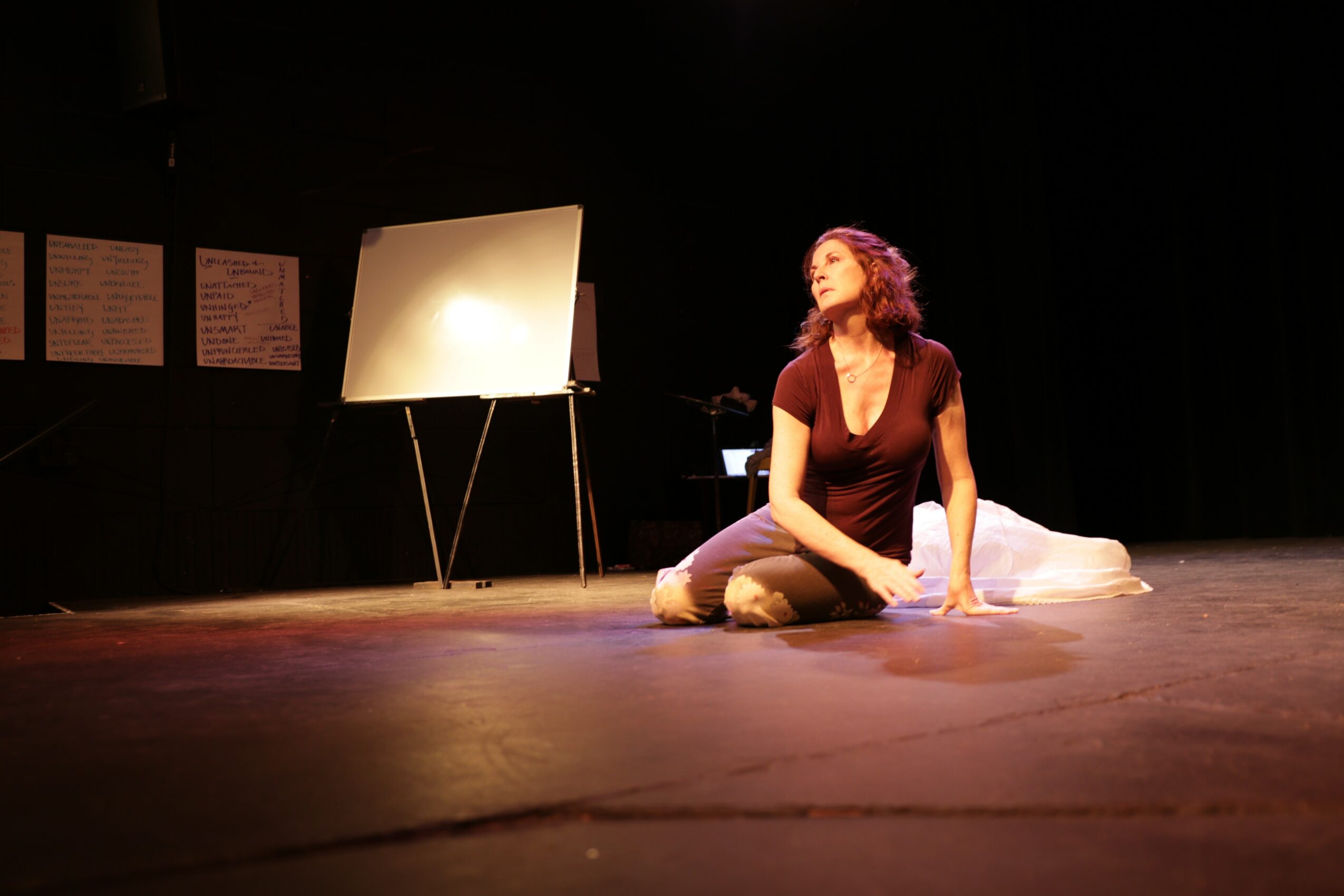

Today we’d like to introduce you to Catherine Glynn
Alright, so thank you so much for sharing your story and insight with our readers. To kick things off, can you tell us a bit about how you got started?
My love of acting started when I was a humanities major in college, and I got to explore a variety of studies, one of which was theatre and another was women’s studies. For my senior thesis, I performed the solo show, The Belle of Amherst, about Emily Dickinson. Since then, my life has been an exploration of theatre in all its forms. I hold two Masters of Fine Arts degrees, one from the University of Texas at Austin, where I taught for five years in Theatre and Dance, and a second degree from the PTTP (Professional Theatre Training Program) at the University of Delaware.
I studied theatre in Japan with Tadashi Suzuki. I was an Artistic Associate with the Rude Mechs in Austin, Texas, Colloraction in Chicago, IL, and a Resident Ensemble Member at the Commonweal Theatre Company in Lanesboro, Minnesota. I have done commercial work and small films and performed in Shakespeare Festivals. I am also a playwright, director, and filmmaker.
Borne out of my creative chaos and need for greater artistic expression in 2016, I founded A.R.T. (Audacious Raw Theater) to gather artists from all walks of life, pay them a living wage, and teach and delve into the art of devised theater-making. Now, in our ninth year, we have a strong method for building original theatrical works from the ground up through conversations, writing, voice and movement work, and improvisatory theatre techniques. Throughout the seven-day process, I encourage the ensemble members to find a balance between creating new work and exploring the beauty of the Driftless of Southeastern Minnesota.
We all face challenges, but looking back would you describe it as a relatively smooth road?
Since last speaking with you, I can say that that road has not always been smooth. Funding for the arts is traditionally a rocky road. I have often paid for A.R.T. out of my own pocket. This means I help some artists with their travel stipends, pay their weekly stipends, cover some of the meals, and help provide housing for the seven days they are in residence. Several community members offered space in their homes for artists pre-pandemic, which was a real boon to us. But times are changing, and while some years I have had great success with grants, they (grants) are not always guaranteed. As a solo producer and artistic director, heading up development (asking for money) from individuals is challenging for me. I have yet to apply for non-profit status, and I am not entirely sure I want to do so. Perhaps for Year 10, I’ll take that plunge!
Great, so let’s talk business. Can you tell our readers more about what you do and what you think sets you apart from others?
So you may be asking, how can I, some seasons, entirely self-fund A.R.T.? In part, it’s because I have a second career that runs in harmony with my work as a performing artist. I am an Executive Leadership & Communications Coach and run a boutique consulting firm called Voce Veritas. (It’s pronounced vō-chē ve·ri·ta,s, and means “true voice” in Latin.)
2025 marks my twentieth year as an executive communications coach; I began my career in Chicago. I love what I do. It’s a perfect complement to my artistic career. As a communications coach, I apply what I have learned on stage to the corporate sector. I teach people to breathe, how to own space through posture and gesture, enhance and synthesize their content to engage their audience, and adopt the right mindset to empower themselves to quiet their inner critics and become their best coach. I also specialize in P-ESL, which is the pronunciation of English as a Second Language. This specialization has perhaps served me best over the years as I have worked with thousands of people from around the world not just to embrace English more comprehensively but also cross-cultural divides by discussing our cultural differences and norms and helping us create bridges that create greater understanding and respect for one another.
One of the things that I am most proud of is that in 2008, during the recession, I chose to start my firm, and rather than advertising, my work has soared through word of mouth. I have written two books: the first, Leadership, Distilled, which explores the mind and heart-set of what it takes to be a leader, and Presence, Distilled, my most recent book, explores the five-step approach that I apply in all my coaching. I am also very proud of the fact that the clients I began with back in Chicago, to this day, still work with me, reach out to me, and recommend me to others.
I work with clients ranging from B-school students heading out onto the job market to C-Suite clients looking at what legacy they want to leave behind. Some clients are working on town hall speeches, presentation skills, or TED talks; some are transitioning to new jobs and working on interview skills. Others seek to do what I do and take their work into the coaching or creative sphere. Regardless of who they are or where they are in life, each one is seeking to set their true voice free, and I, and my cohort of coaches from around the world, help them do just that. This, in turn, helps fund artists worldwide, setting their true voices free through A.R.T.
The crisis has affected us all in different ways. How has it affected you and any important lessons or epiphanies you can share with us?
The COVID-19 crisis taught me a great many lessons. Regarding coaching and creativity, BOTH can continue and flourish in an online environment. While I prefer being in person for both types of work that I do, I am deeply grateful that platforms like Zoom exist and are constantly updating to create more dynamic environments for groups to work and play in.
I do a lot of writing, and when it became clear that coaching, speaking, and performing gigs wouldn’t be taking place in person, I pivoted to the written word. That’s when I wrote my first book, Leadership, Distilled. I also took that time to cultivate a sense of trust that all would be well. I meditated every morning for twenty minutes every day, sometimes more often. I knew that A.R.T. couldn’t happen in person, so I asked two local non-profits, Lanesboro Arts and the Commonweal Theatre Company if they would like to collaborate and take my play, the Root River Anthology, and make it into a radio play/podcast. It was amazing; over 24 artists worked on that project! It inspired a whole series of work for the next two years that required me to learn filmmaking and editing.
In terms of coaching, people needed to learn how to harness the power of online platforms and get comfortable with them without burnout. So work was plentiful, and it was fun to help people realize they could take breaks, have their kids/cats/dogs show up in specific meetings, and create lighting and backgrounds that made the look and feel good. And that stepping away from your computer and getting out into nature is essential. Mother Nature has so many lessons to teach us.
I also learned the lesson of gratitude and not taking anything for granted. Some people suffered greatly during the pandemic (and continue to do so), while others sit in a place of privilege. Honing our ability to listen, check-in, be aware of our audience’s needs, empathize, and express that we care is critical. If I were to sum up my most profound lesson of the COVID-19 crisis, it would be that I leaned into the power of metaphor more than ever, and I learned to be more like a bat. Yes! You read that right: I learned to listen with my eyes and see with my ears. And it has made all the difference.
Contact Info:
- Website: https://voceveritas.com/
- Facebook: https://www.facebook.com/rawdacioustheater
- LinkedIn: https://www.linkedin.com/in/catherineglynn/
- Youtube: https://www.youtube.com/@catherineglynn2852/featured?app=desktop
- Other: https://rawdacious.art/root-river-anthology
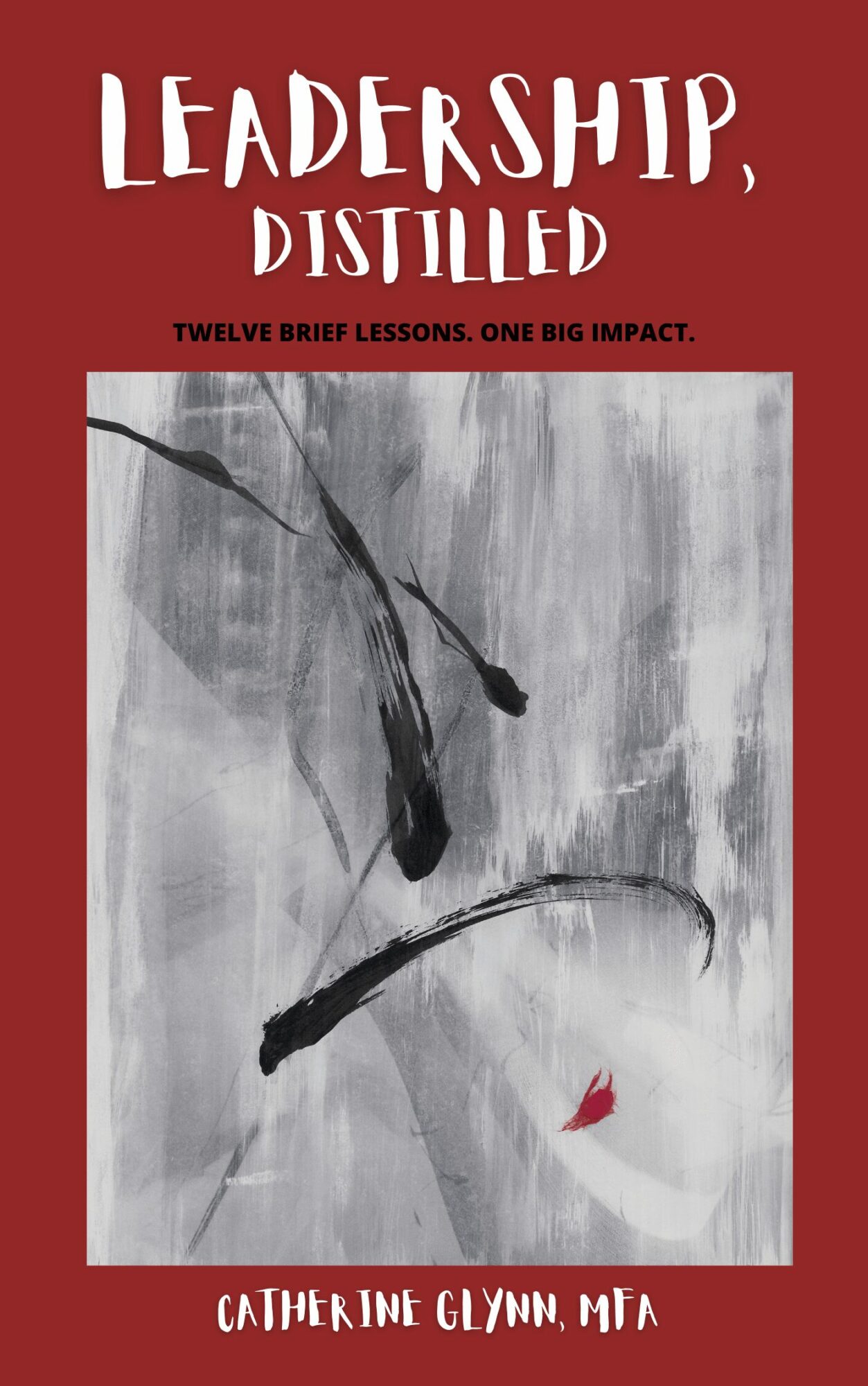
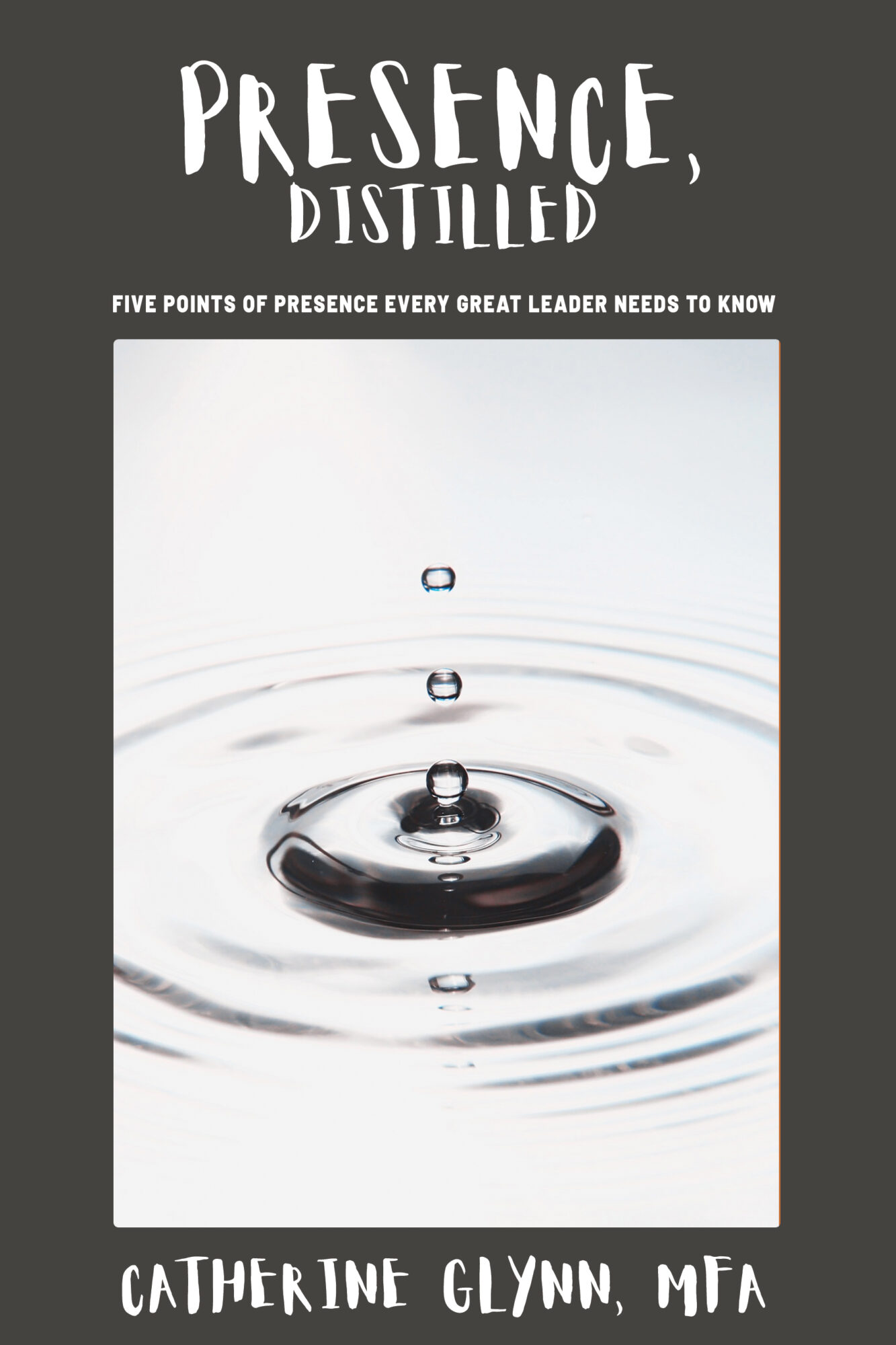
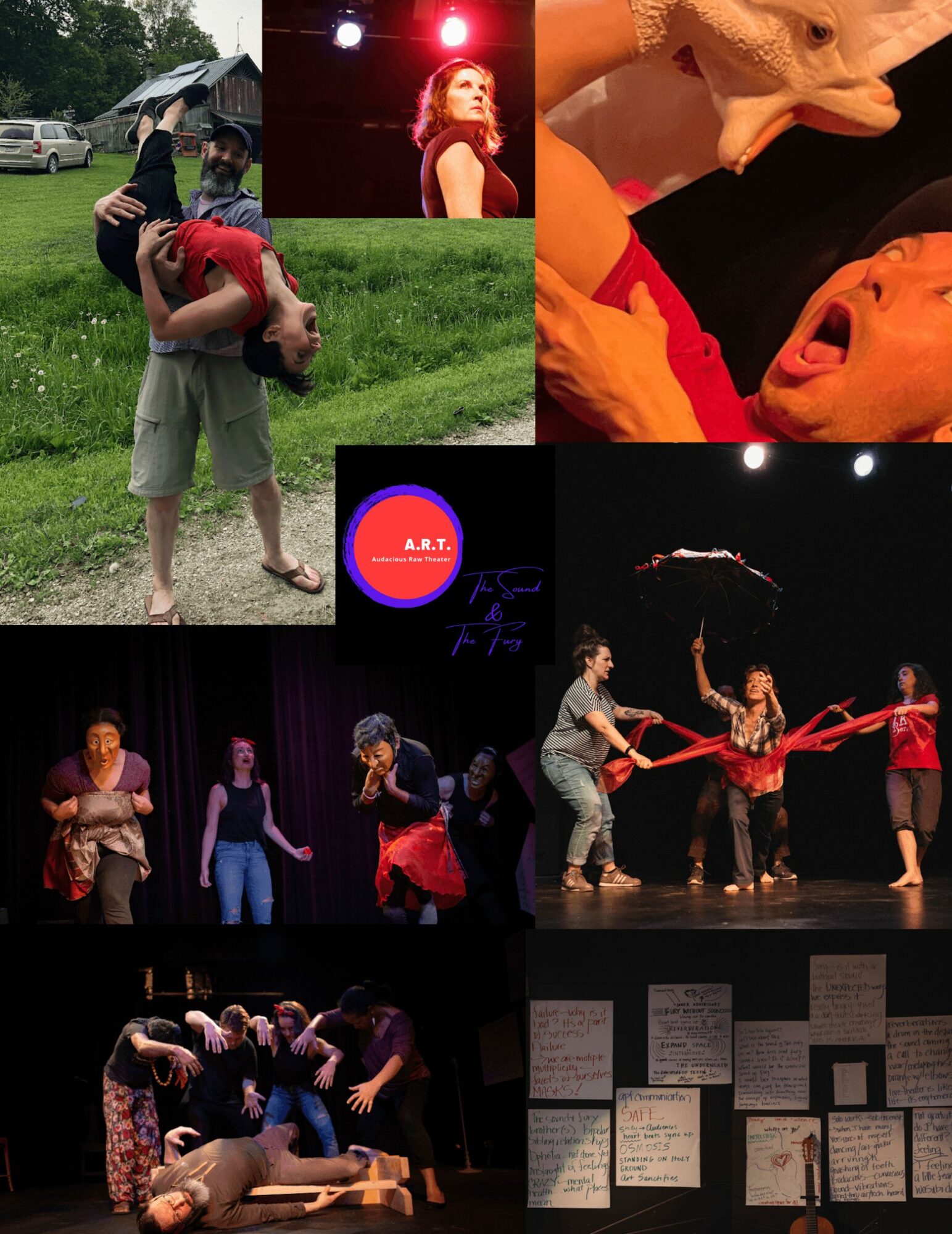
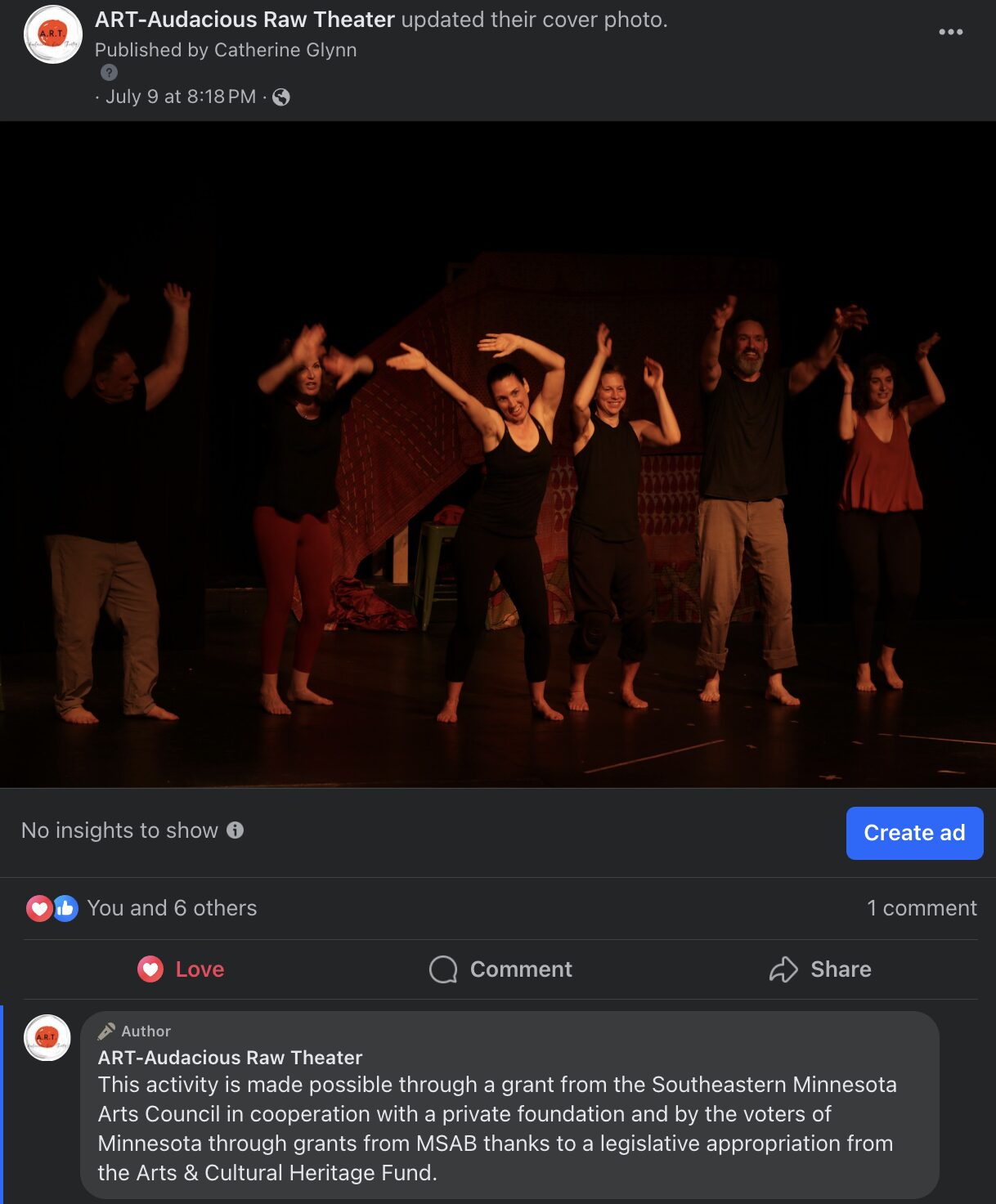
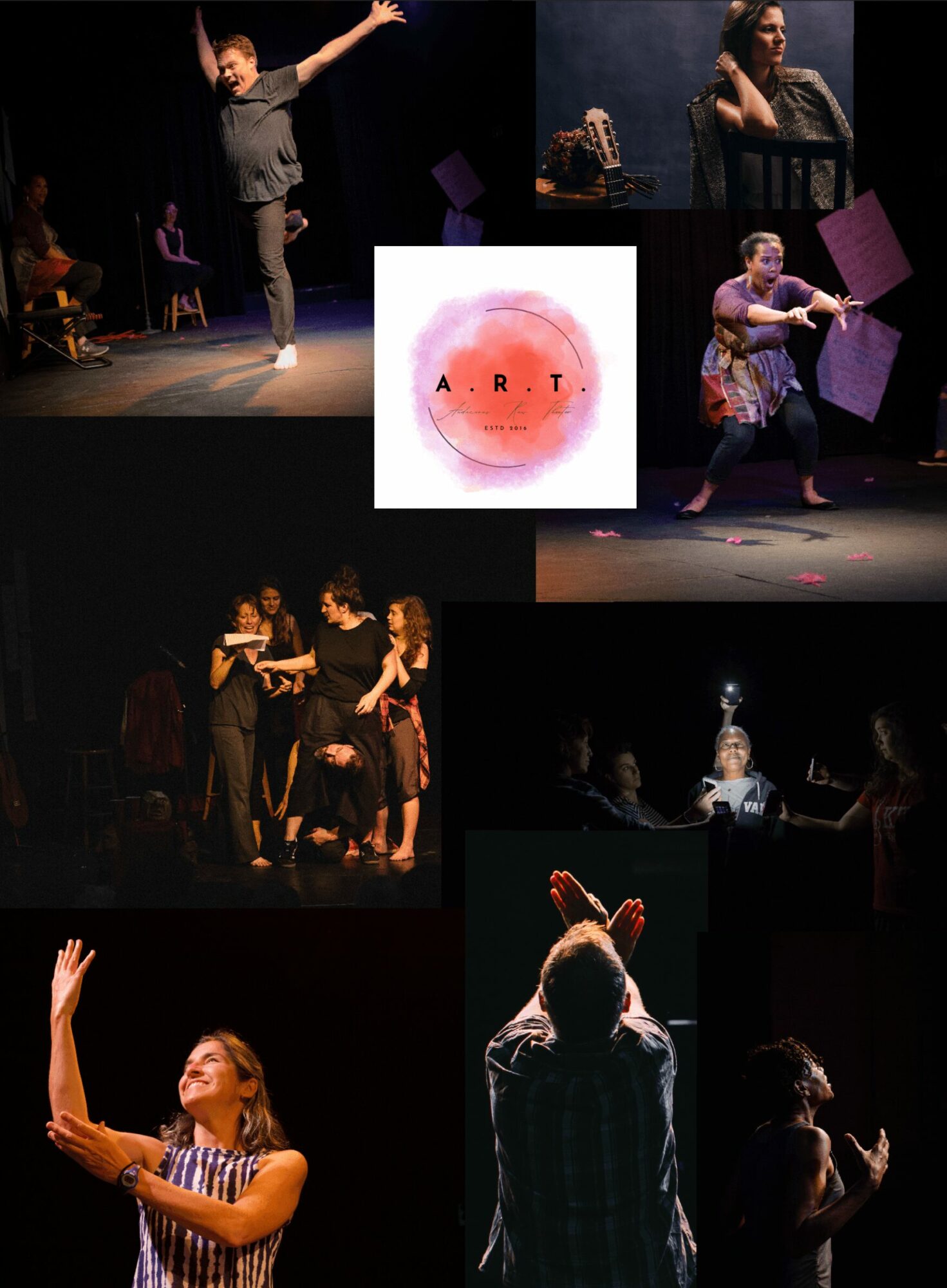
Image Credits
Catherine Glynn, Michael Sieler, Tyler Anderson, Sarah Minor

